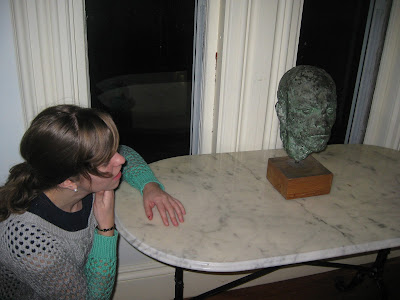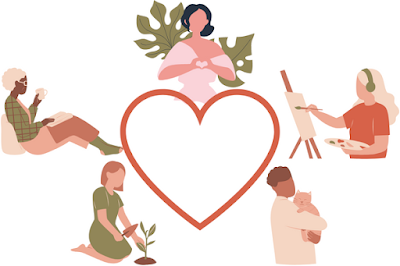The Future is Dialogue
I've become convinced that the future I want to live -- a future of reconciliation, unity, and the end of prejudice and oppression -- is only possible through constructive dialogue.
 |
| Me having unsuccessful dialogue with a statue |
It's been an idea percolating in my mind for the last
four months – instigated by Oprah Winfrey’s debut 60 Minutes segment. The idea is that intentional
dialogue can create unity and common ground in a politically and socially
divided America.
On 60 Minutes, Oprah mediated a round table discussion featuring
Michiganites of various political affiliations. As she raised political issues,
there were some heated moments and some “agree to disagree” concessions. However,
after hours of talking the group appeared to find some common ground, and later some
members of the focus group even chose to keep in touch and continue the
conversation. Unfortunately, as the country has become increasingly politically
divided, many of these conversations between people of differing views have
stopped occurring naturally.
In my life and in my writing I like to dig deeper and get to
the root of the problem. Why has racism and white nationalism persisted past
the civil rights movement? Why has anti-immigration become the conservative
rallying cry? In the history of humanity, humans have a tribalism tendency to
fear and hate some form of the “other” people not like them, and inevitably make
them the scapegoat of our problems. Even in our current society, this fear of
the “other” tends to persist when there is lack of meaningful interactions with
whoever the “other” is: black, Hispanic, transgender, Muslim, immigrant, Jew, gay.
I’m reminded of a 2015 This American Life episode titled
“The Incredible Rarity of Changing Your Mind.” In the first act, California
canvassers take a different approach to gaining votes for support of gay
marriage and abortion. Instead of encouraging supporters to come out and vote, they went to the areas that overwhelmingly
voted against them to try and switch
their votes through dialogue with these voters. Canvassers quickly found that
an appeal to idealism didn’t work, because people tend to make decisions on a
gut or emotional level. It needed to be personal, interacting with a canvasser who
had an abortion or who is gay. Most importantly, the canvasser needed to listen, to let the voter have a platform
to share, before expecting the voter to listen to them. Surprisingly, the
political scientists who followed up with research found it worked, often changing
voters’ minds long-term.
Proof of constructive dialogue’s effectiveness is evident in
other dramatic instances. The Atlantic’s article, “The Audacity of TalkingAbout Race With the Ku Klux Klan” details the story of Daryl Davis, a black
musician who befriended members of a local Ku Klux Klan. These friendships,
which initially started from Davis’ curiosity about the nature of racism, eventually
led twelve Klan members to give up their beliefs, effectively ending Maryland’s
KKK. Similarly, New York Time's The Daily’s August interview
with former white nationalist Derek Black described a 180-degree transformation
that was encouraged by relationships fostering productive dialogue with “the
other.”
Though slow, dialogue seems to be the best long-term solution
to our present disunity. It isn't always comfortable, and often won't come about naturally. But we still need to try. Because dialogue is the future.
 |
| Me dialoguing with Santa on how good I've been |


Comments
Post a Comment